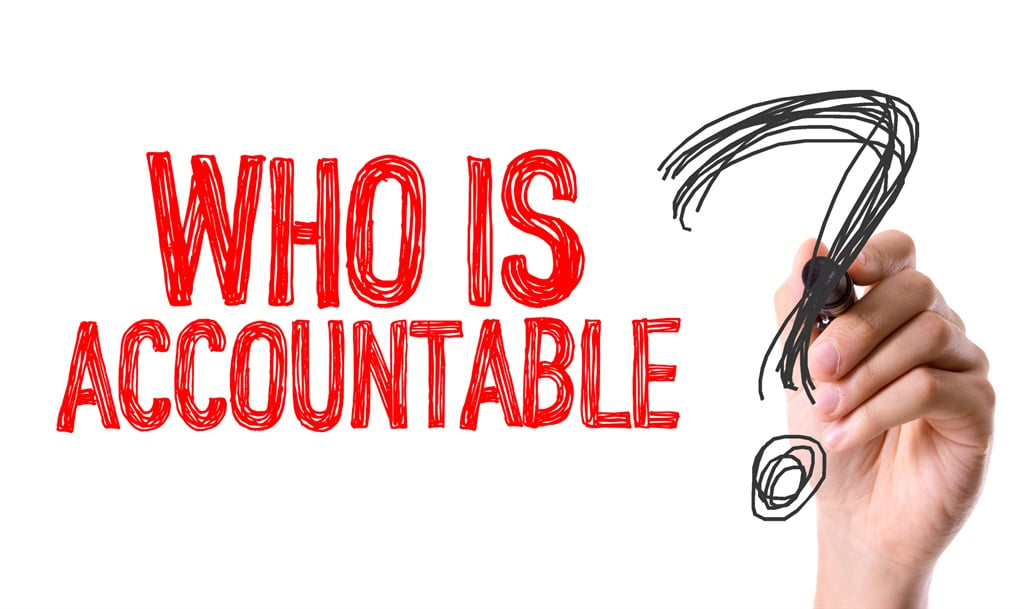
When, in 1997, the government launched the Batho Pele – People First – initiative to transform public service efficacy and effectiveness, the citizenry’s expectations were raised but then morphed into huge disillusionment.
The Batho Pele slogan became a tardy rhetoric with dire consequences, largely manifested in shoddy governance and municipality underperformances.
For instance, the article, A Tale of Two Cities, in the City Press (February 3 2019) conjures mixed emotions for those witnessing systemic degradation of formerly vibrant areas and lays bare decades of governance dysfunctionality.
At face value the state of dysfunctionality in Mahikeng, Mthatha and other parts of Mzansi could be the consequence of limited resourcing (infrastructural and human capital).
Various commissions of inquiry into allegations of state capture, corruption and fraud within the public – and private – sector underscore the veracity of a rapacious juggernaut oiled to pillage state resources with impunity under officialdom’s watch.
When President Cyril Ramaphosa outlined steps to deal with corruption during the state of the nation address (Sona), it gave hope but is it too late?
Time shall attest to the efficacy of the announced approaches to address chasms in governance.
The plight of Mahikeng is lyrically emboldened in song by the motswako rapper Mo Molemi, in a track, Maspala (municipality), which decries the state of road decay (potholes): “Kere somebody thiba dipotholes, kara yame ya tlola every time I am on the road. Ke a go kopa maspala thiba dipotholes; go konega rim every time I go home.” Loosely translated it means: “I say somebody fix the potholes; my car bounces every time I’m on the road. I beg you municipality fix the potholes; rims get damaged every time I go home.”
Similarly, the King Sabata Dalindyebo municipality has lost its sparkle – streets are strewn with garbage, raw sewage flows down the streets and illegal dumping sites are mushrooming.
As with other Mzansi municipalities the phenomenon of EishKom has caused business chasms.
Financial debauchery in irregular expenditures reported by the Auditor-General creates fertile conditions for corruption.
These incidents cast aspersions on governance practices. Somehow, we have lost the notion of good governance.
When South Africa became a democracy in 1994, we recommitted to usher in selfless delivery of public services underpinned by the Batho Pele approach.
We also undertook to deepen democracy through social contracts and other state programmes.
Were these undertakings euphoric infatuation with the allure of democracy without understanding the complexities of the endeavour?
The fact is we dropped the proverbial ball of good governance and efficacious service delivery.
The Mahikeng and Mthatha cases are the tip of the governance iceberg, which has not been efficiently addressed for the 25 years of democracy.
As citizenry, we are equally complicit in the degradation of municipality governance and services.
We failed to hold these entities accountable. Non-service delivery protests often resulted in promissory officialdom retorts; but governance chasms festered to debilitating levels of dysfunctionality.
We are complicit in creating dyslexic accountability for culture and heritage.
The significance of the notion of heritage is aptly defined by advocate Sonwabile Mancotywa, CEO of the National Heritage Council that: “Heritage all over the world plays two important roles in the modern nation state. It serves as a unifying force, helping to construct a national identity, a common purpose and shared values … it contributes to economic development.”
If the notion of heritage defined by Mancotywa were applied to the way municipalities function, how would we describe governance?
Does it espouse excellence? Should it be celebrated with reverence? Can we celebrate it with effervescence at Heritage Day celebrations?
Failure to make municipalities functional creates and replicates a heritage that is not equal. It is often rationalised as having limited resources.
Yet, the Auditor-General’s reports debunk this argument. It is a consequence of ineptitude of leadership that must be addressed.
The state policies are quite explicit on how to change the status quo. For instance, the National Development Plan (NDP) 2030 identifies five key national priorities to which municipalities must contribute.
They are:
- Unite all South Africans around common programmes to achieve prosperity and equity;
- Promote active citizenry to strengthen development, democracy and accountability;
- Bring about faster economic growth, higher investment and greater labour absorption;
- Focus on key capabilities of people and the state; and
- Encourage strong leadership throughout society.
There is no way to transform dysfunctional municipalities instantly. It’s a partnership between citizenry and government.
Only shared endeavours will enhance the successful attainment of the NDP objectives.
There is need for the robust use of municipality “black boxes” to create bridges to effective, efficacious and sustainable governance.
A comprehensive “X-raying” of municipality architecture will enhance accountability, effectiveness, responsiveness to national imperatives.
Scaling up praxis and monitoring processes could enhance performance and engender public confidence.
Reframing consequence management approaches to mitigate accountability lapses will create a conducive environment for engaging municipalities as key levers of governance.
Bringing fresh reframing and implementation techniques will spare us similar horrors to those of the two cities mentioned in this article.
Monyooe is a concerned citizen




 Publications
Publications
 Partners
Partners








